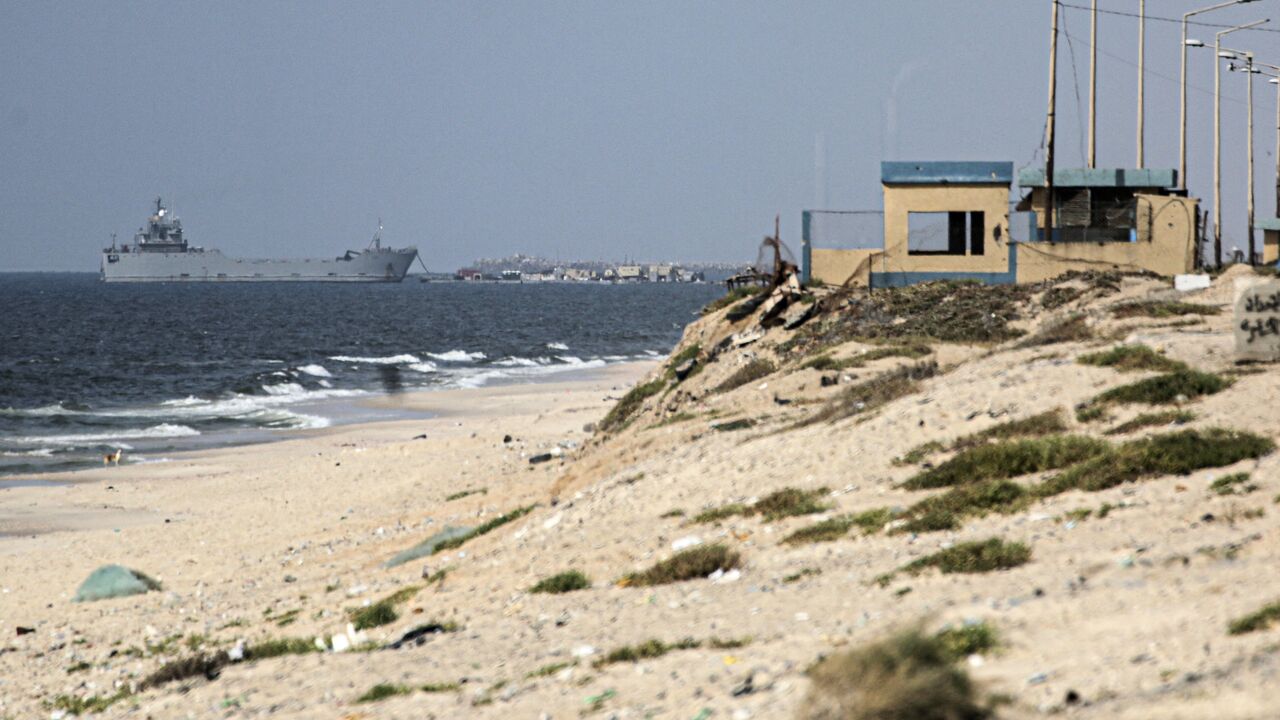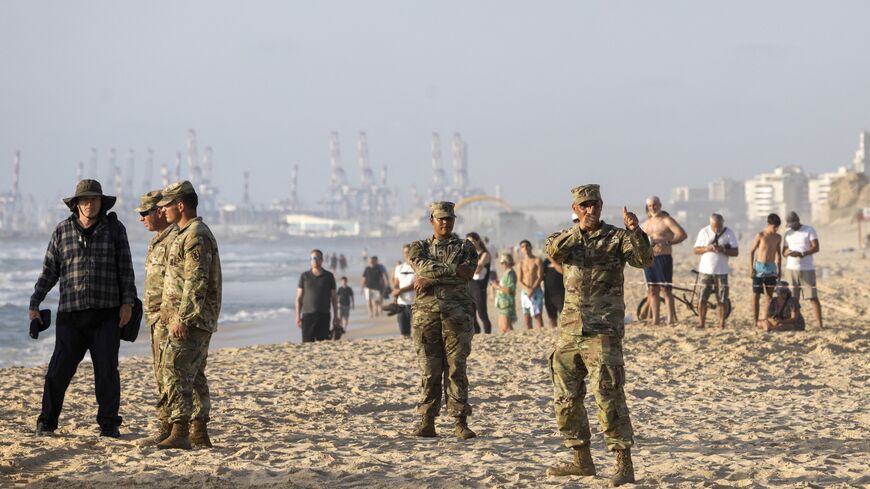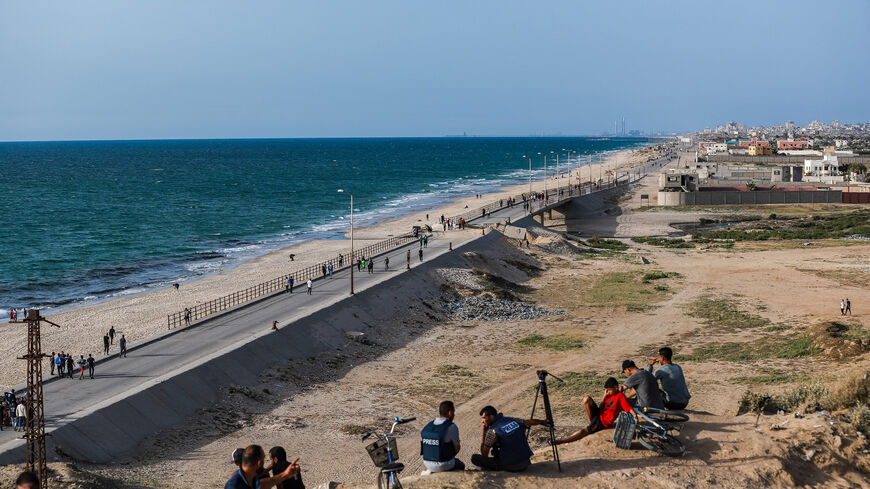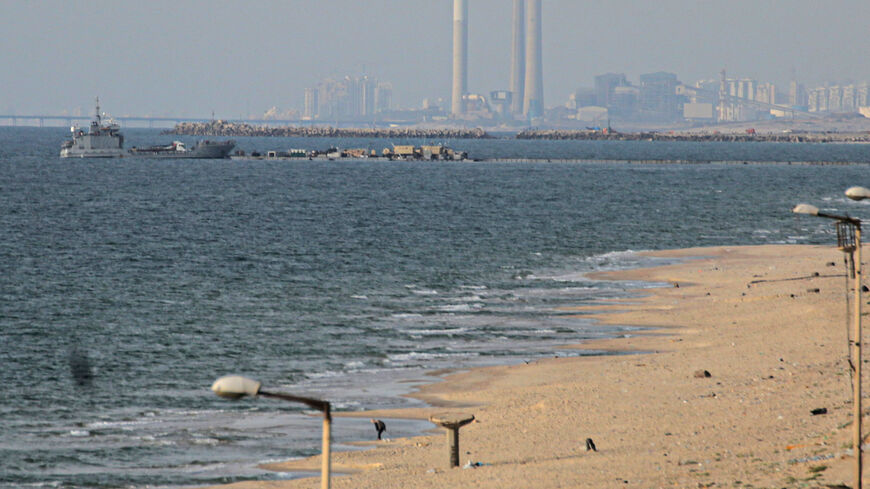US to dismantle Gaza humanitarian pier again due to heavy seas
Bad weather has once again thwarted the Biden administration's attempt to stave off famine in the Palestinian enclave.

WASHINGTON — The US military will dismantle a floating humanitarian aid pier on the Gaza coast for a second time in less than a month due to heavy seas, a defense official confirmed to Al-Monitor.
The pier will be towed to the Israeli port of Ashdod to wait out another round of bad weather in the eastern Mediterranean in order to avoid damage to the structure.
The floating dock, known as Joint Logistics Over-the-Shore (JLOTS), was first installed by US Army vessels in mid-May on orders from US President Joe Biden in order to help alleviate famine in the blockaded Gaza Strip.
Yet the project has faced repeated setbacks. Late last month, the pier broke down after sustaining significant damage and had to be towed to Ashdod for repairs before being reinstalled on June 7.
During the pier's less than two weeks of operation in May, American military vessels ferried roughly 1,000 metric tons of aid to the floating dock for onward distribution in Gaza by the UN’s World Food Programme. Following the repairs, seaborne deliveries to the pier occurred June 8, but then paused again for two days due to high seas, Pentagon officials said.
A defense official speaking to Al-Monitor on Friday on the condition of anonymity gave no planned date for the resumption of the pier's operations.
The WFP halted onward distribution last weekend after two of its warehouses were hit with rockets on Sunday. The rocket attack came after rumors spread that an Israeli military raid that rescued four hostages and left more than 270 Palestinians dead was launched from the pier area — a claim Pentagon officials flatly denied.
The Pentagon also paused air drops of humanitarian goods into Gaza last month, citing risks to civilians amid ongoing Israeli operations in north Gaza. US Air Force C-130 cargo aircraft dropped 10 tons of meals-ready-to-eat (MREs) over the enclave on June 9 for the first time in a month.
Humanitarian aid organizations have said access to food in the Gaza Strip has worsened since Israel’s military incursion into the southern Gaza enclave of Rafah last month. The IDF’s push along the Philadelphi Corridor along Gaza’s border with Egypt has led Cairo to object and halt aid deliveries via the Rafah crossing, which was the Palestinian enclave’s greatest source of international aid prior to the ongoing war.
Biden administration officials have stressed that the humanitarian pier and air drops are not meant to compensate for the lack of flow of humanitarian supplies getting through border land-based crossings into Gaza.
International aid groups have accused Israeli authorities of obstructing the flow of aid through overland crossings by employing unreasonably strict inspection methods.
World Health Organization director Tedros Adhanom Ghebreyesus on Wednesday said "a significant portion" of Gaza's population now faces famine-like conditions.
Also on Wednesday, the UN’s independent commission of inquiry released its investigation into the Oct. 7 war. In the report, the group of independent experts accused both Israel and Hamas of war crimes, while also accusing Israel of crimes against humanity, including using starvation as a weapon of war. Israel’s government, which refused to cooperate with the investigation, rejected the allegations, accusing the commission of bias.
The US State Department announced economic sanctions on an extremist Israeli settler group known as Tsav 9 on Friday for its alleged role in attacking aid trucks bound for Gaza.
On Tuesday, the US House of Representatives advanced its version of the annual defense spending bill, which included a measure authored by Georgia Republican Congressman Andrew Clyde, which would bar the Biden administration from using Department of Defense funds to continue the Gaza aid pier in fiscal year 2025.
Defense officials say the pier operation — which the Pentagon has estimated will cost some $230 million — is not expected to last longer than a few months. Privately, some senior US defense officials see the pier system as likely unsustainable given the recent sea states in the eastern Mediterranean, Al-Monitor previously reported.





